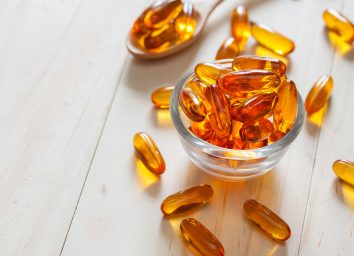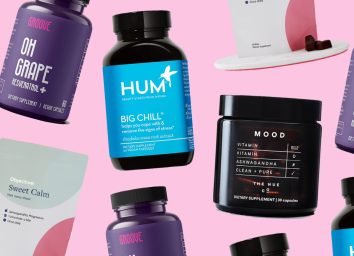Best Nutritional Powder Supplements, According to Nutritionists
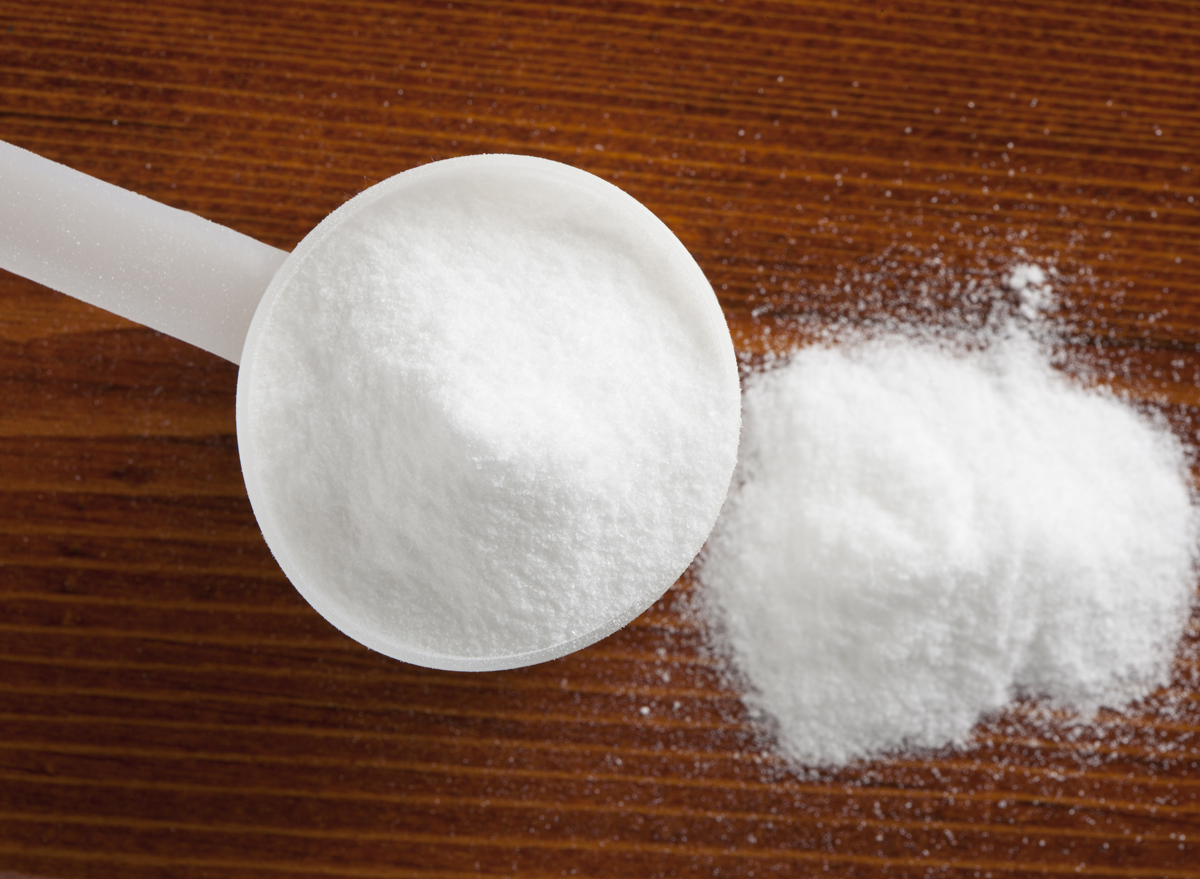
When we hear "nutritional powder supplements," most of us think of protein or meal replacement powders that you mix with water, milks, or other beverages. You can't miss them. So popular, these meal replacements are found in supermarkets, not just the local GNC or CVS. While athletes and dieters have been drinking their dinner for years, today taking a powder can mean mixing up a beverage to support a multitude of nutritional goals.
Powdered nutrition supplements that you mix with water, milk, or other beverages are a more potent option and usually contain no sugar or less than those chewy candy-like supplements. "Powder-form supplements are thought to be better absorbed than capsules since they are already partially broken down when you drink them, which means your body has less work to do during digestion," says registered dietitian nutritionist Brittany Lubeck, MS, RD.
Since protein is the leader in this powder keg of a category, let's start there. But first, you may want to learn about The Secret Side Effects of Eating Protein Bars.
Protein
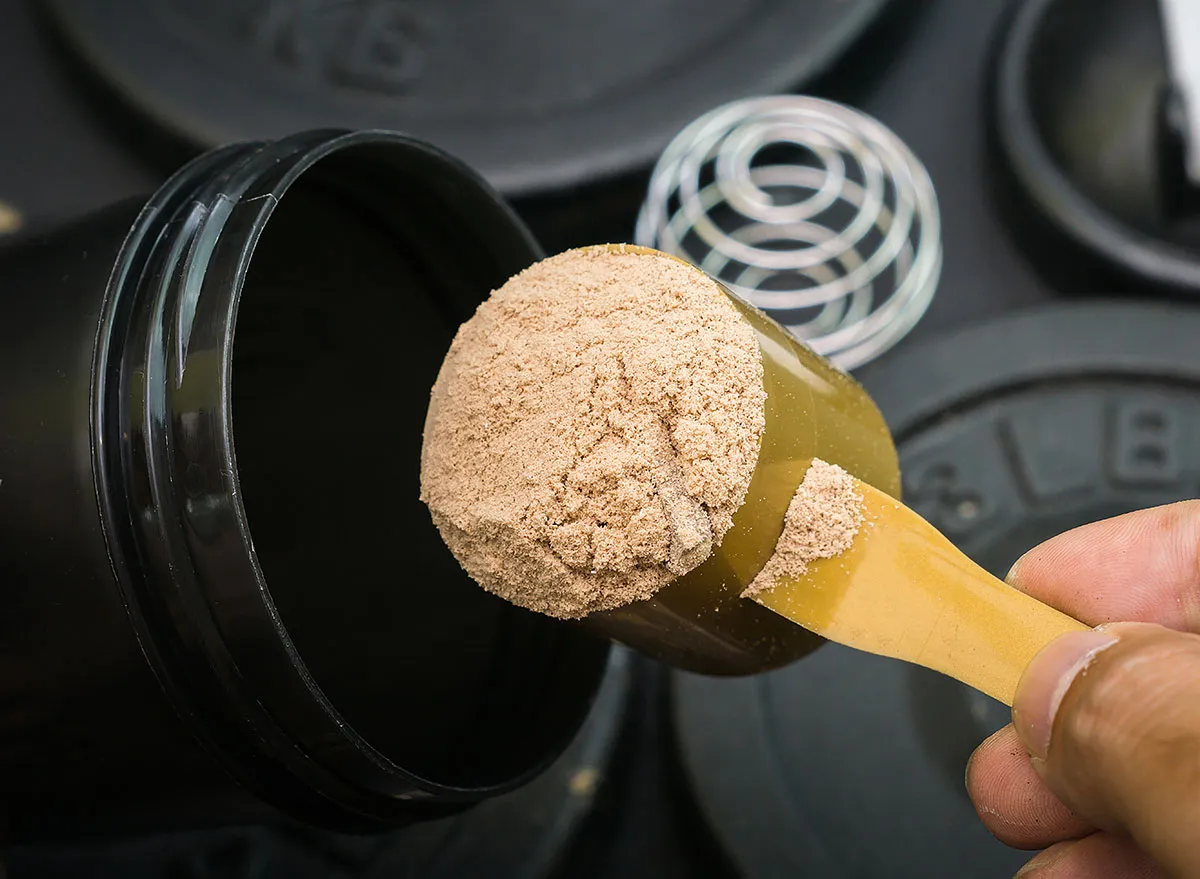
Whey protein powder is generally thought to be the best form of protein proven for weight loss and muscle growth "because it contains leucine, an amino acid that promotes muscle building," says Jay Cowin, a registered nutritional therapist and director of formulations for the self-care company ASYSTEM. He recommends using one to two scoops per serving and drinking it as a meal replacement, after a workout, and before going out to eat to curb your appetite.
A meta-analysis of studies in 2017 demonstrated that protein supplementation, when combined with resistance training, resulted in marked muscle gains and strength. Lubeck, a nutritional consultant for OhSoSpotless.com, prefers whey protein because it tends to have fewer added ingredients than other protein powders and is gentler on the stomach. When she's trying to cut back on animal foods, she uses a plant-based protein like pea protein to ensure she's getting enough protein in her diet.
Collagen
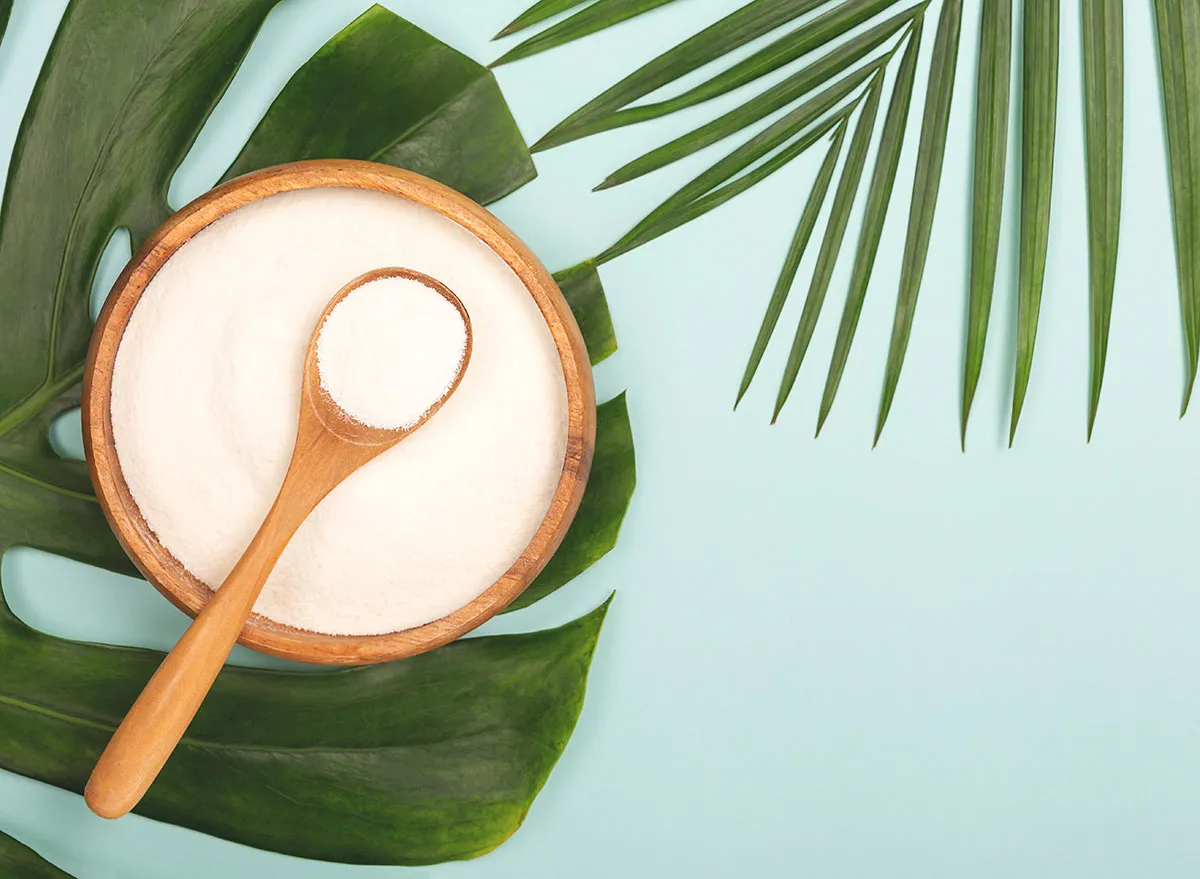
Collagen is a building block for skin, hair, nails, tendons, ligaments, and muscle. It provides the structural support that keeps our skin from sagging. You start to lose it as early as your 20s, which is why it has become such a hot supplement for people of all ages. "Powdered forms of collage may be the most bioavailable and easiest for the body to process," says nutrition professor Trista Best, MPH, RD, a registered dietitian for Balance One.
While there are 28 different types of collagen, Best says the most common are types 1, 2, and 3. One and three increase the elasticity of the skin. Type 2 is found primarily in joints and bones. "Collagen is very versatile and can be added to hot or cold beverages, mixed in with shakes, and even sprinkled on food," says Best. It's most commonly mixed in with meal replacement shakes. Effective doses are between 3 and 15 grams, she says.
Nutritional Yeast
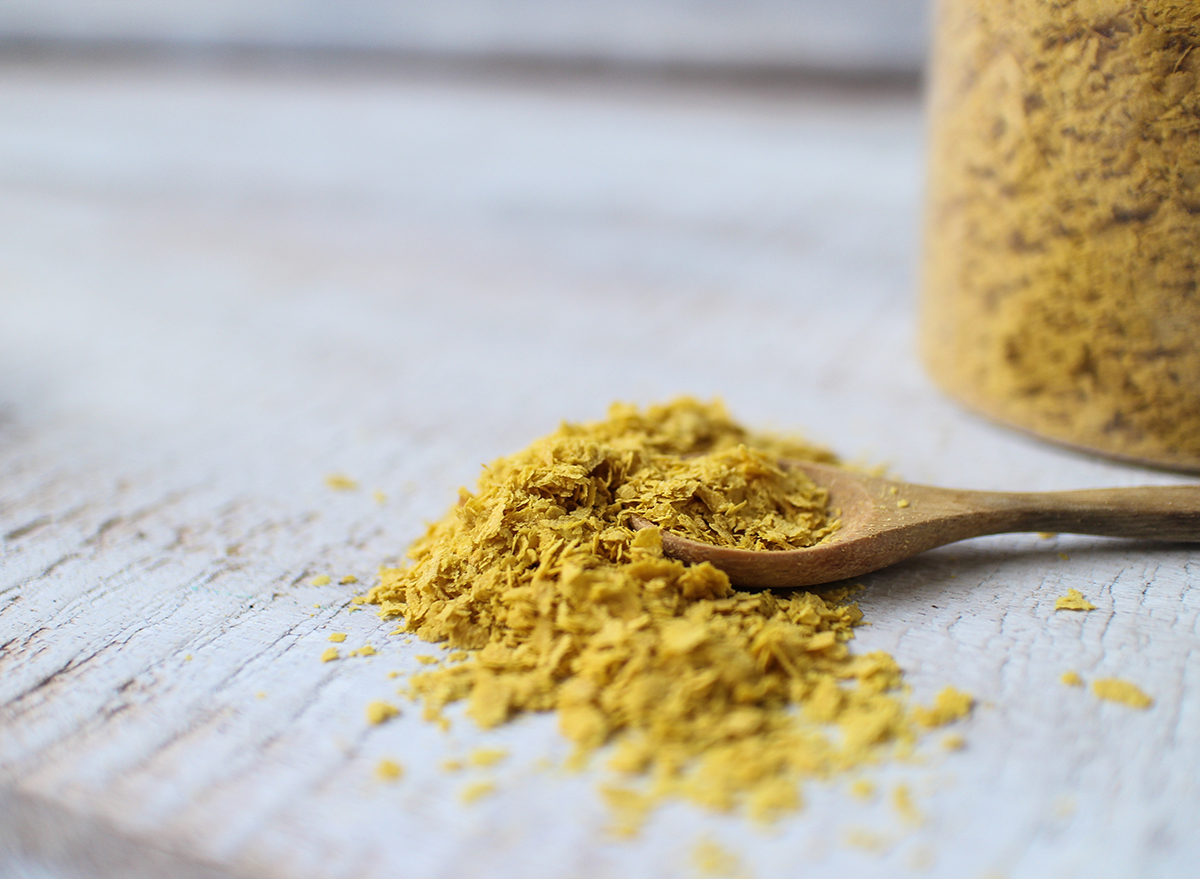
Nutritional yeast is a deactivated yeast that's very rich in vitamins and minerals. It's popular with vegetarians and vegans because it's a moderate source of complete protein, which helps with muscle and tissue repair and nutrient absorption, says Mary Wirtz, RDN, CSSD, a registered dietitian nutritional consultant at MomLovesBest.com.
"If you're looking to experiment with nutritional yeast, sprinkle it on a salad or mix it with your cooked quinoa dish to boost nutrition," she says. "It's a cost-effective and portable way for people to get a boost of excellent nutrition to help balance out their diet."
Ground Flaxseed
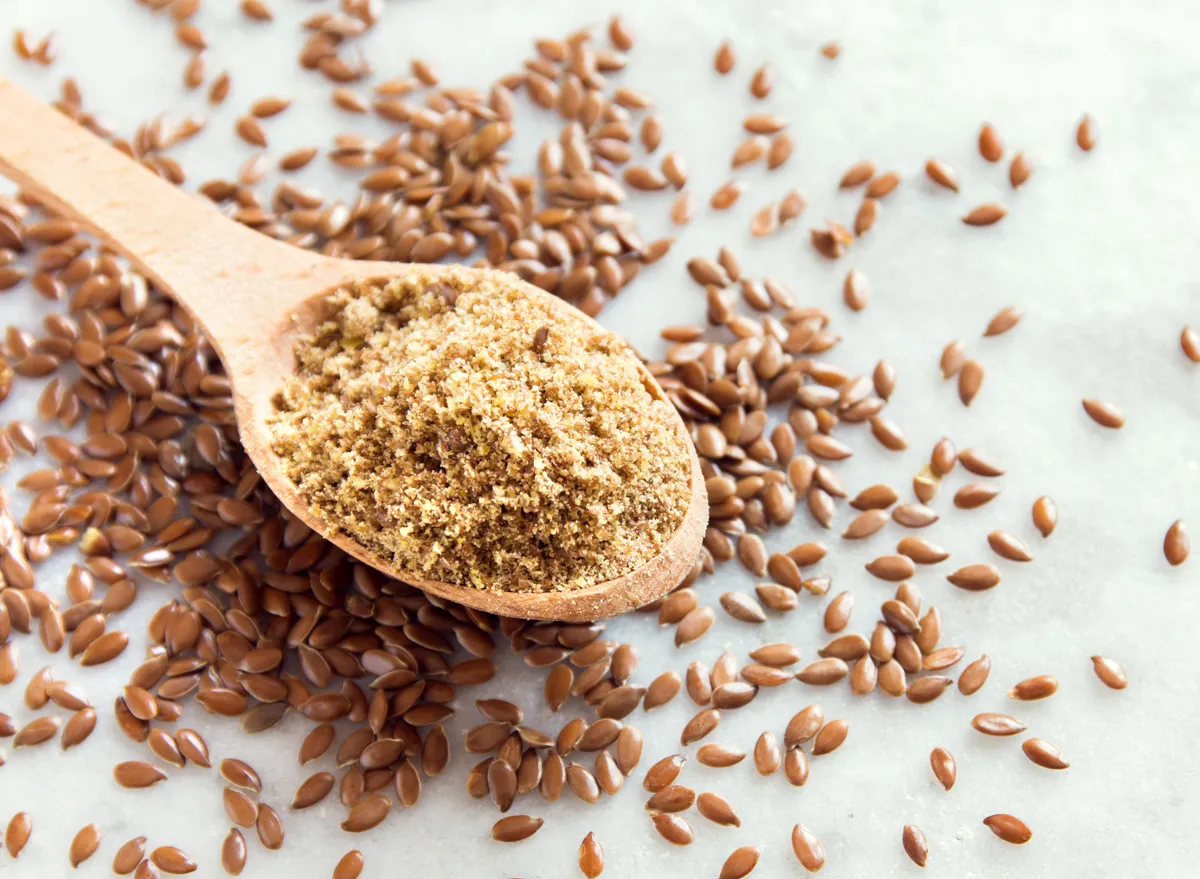
Flaxseed has been well-researched for reducing the risk of chronic health conditions like cardiovascular disease, preventing diabetes, and lowering cholesterol levels, according to the Mayo Clinic. "I like adding ground flaxseed to a yogurt parfait or homemade smoothie because it has a neutral, nutty flavor," says Wertz. "It's a very rich source of nutrition, including omega-3 fatty acids, dietary fiber, and protein."
Myo-Inositol
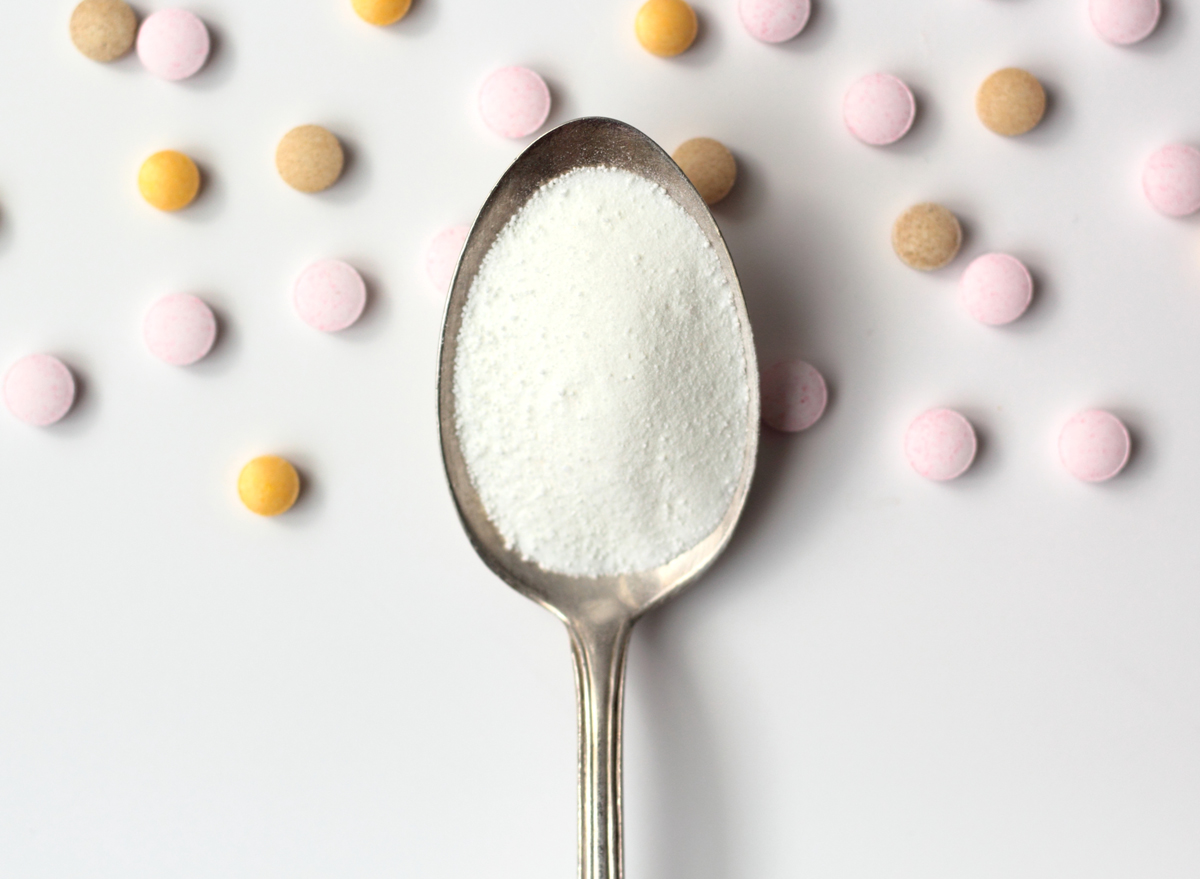
Myo-Inositol is a vitamin-like substance produced by the body and found in fruits, grains, nuts, beans, and organ meats. It's involved in metabolism, breaking down and converting glucose to glycogen for energy storage. Due to that action, myo-inositol supplements are often recommended for people with insulin resistance, the primary cause of type 2 diabetes.
"Myo-inositol has been proven in studies to be effective at reducing blood sugar levels in people with type 2 diabetes, improving insulin resistance in women with polycystic ovarian syndrome (PCOS) and even preventing gestational diabetes in pregnant women," says registered dietitian Diana Gariglio-Clelland, RD, a Certified Diabetes Care, and Education Specialist and nutritionist on staff at NextLuxury.com.
One study of postmenopausal women with metabolic syndrome in the journal Menopause demonstrated that myo-inositol supplements taken daily for six months improved insulin sensitivity, reduced triglycerides by 20%, decreased diastolic blood pressure and improved HDL (good) cholesterol levels. "Considering how many people have prediabetes or type 2 diabetes, myo-inositol may be an effective way to prevent these health problems; it's safe and has no side effects for most people," says Gariglio-Clelland.
Creatine Monohydrate
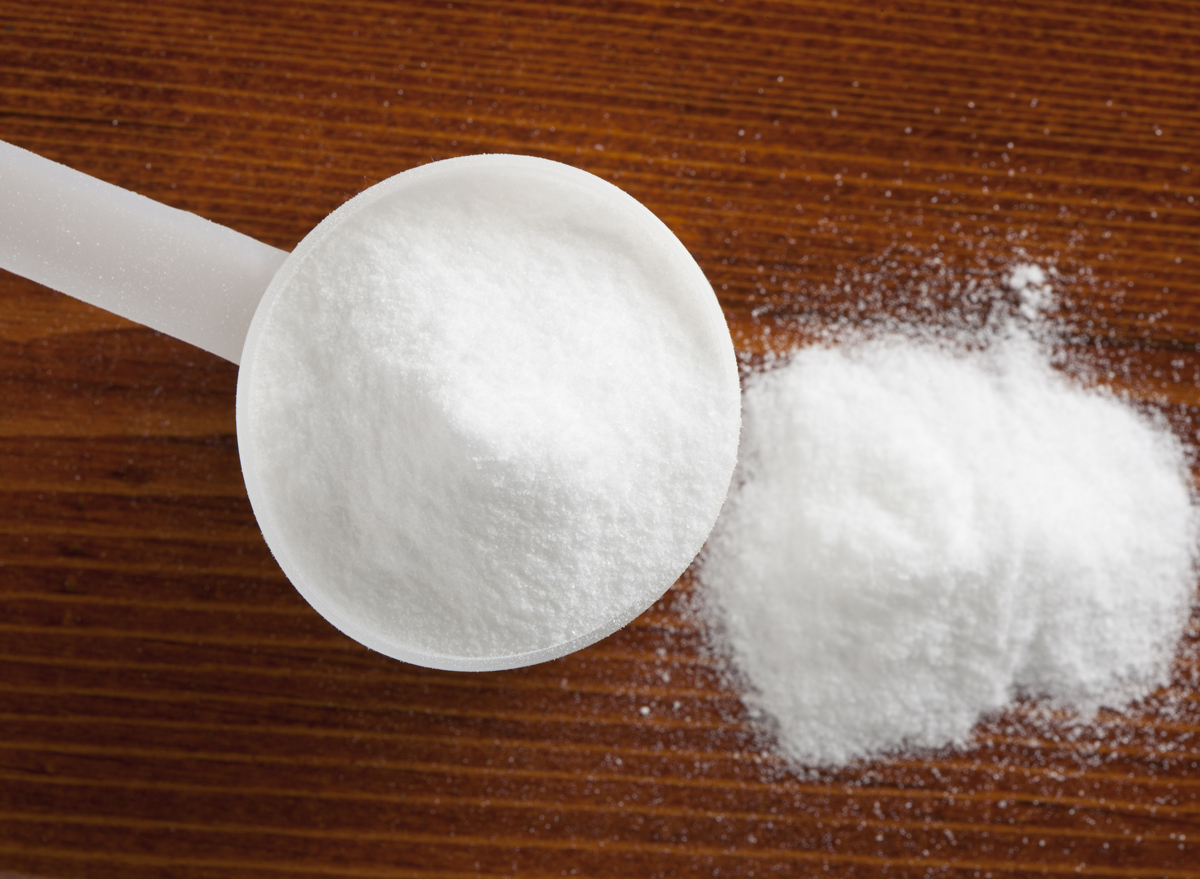
Creatine is an amino acid found in red meats and seafood, and it's also a popular dietary supplement that studies suggest can increase muscle mass and improve athletic performance in high-intensity activities. "It plays a critical role in the body's ability to create cellular energy," says registered dietitian Joel Totoro, RD the Sports Science Director at Thorne. The chemical is also found in the brain as well as the muscles, and more and more research suggests a link to improved cognition and brain health, he says.
Read this next:
